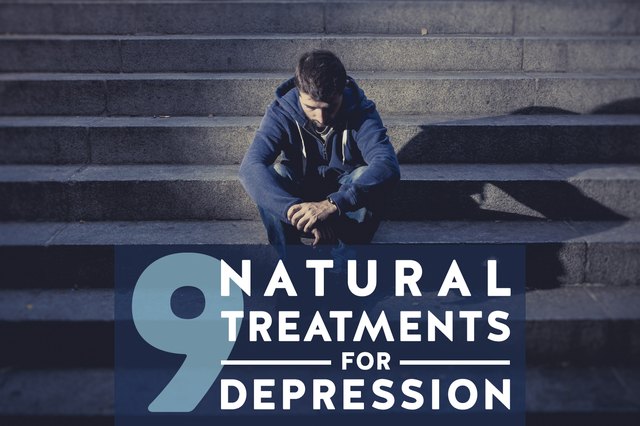
We all have those days. The mornings you just don’t want to get out of bed. You have no motivation and nothing sounds like fun. But when that one day turns into multiple days and then weeks, you may have depression. If this is the case, you are certainly not alone. Depression affects 8 percent of women and 4 percent of men in the U.S.
One solution is to take a medication prescribed by a doctor, however, many of these are addictive and have side effects, such as insomnia, nausea or emotional numbness. So, you may want to try a natural treatment first to see if your symptoms subside.
Check out these nine natural treatments to stave off the blues. Perhaps one or a combination of these treatments can help you to feel like yourself again.
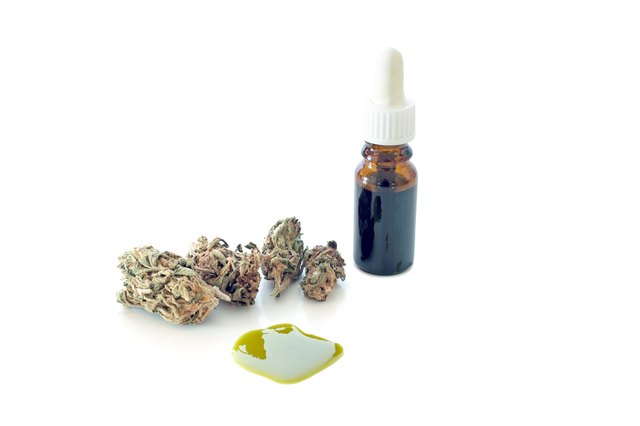
1. Cannabidiol (CBD)
Do you want the health benefits of medical marijuana but without your mind taking a one-way ticket to Pluto? CBD may be your answer. Marijuana is primarily comprised of two compounds: THC, which provides the euphoric "high" state, and CBD, which delivers most of the health benefits, such as reducing anxiety and depression. A 2013 review in the British Journal of Clinical Pharmacology found CBD to also have medical properties to reduce joint pain and inflammation, suppress seizures, and slow the rate of aging of the brain. CBD is legal in the U.S. and is administered daily as a tincture. Learn more about CBD and it's health benefits here.
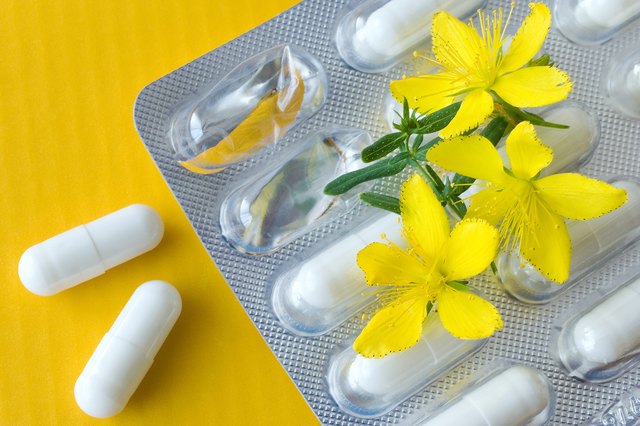
2. St. John’s Wort
Herbal medicine has been used for hundreds of years to treat depression and recent research is proving it to be clinically effective. St. John’s Wort, for example, has been shown to be better than a placebo and is widely prescribed in Europe for depression. In 2009, a review based on 29 international studies showed that St. John’s Wort provides fewer side effects than prescription antidepressant medications when taken by those with moderate depression.
Caution is advised with St. John’s Wort, however, as it can have negative interactions with antidepressant and antianxiety medications. So if you are already taking prescription medication, check with your doctor before taking St. John's Wort.
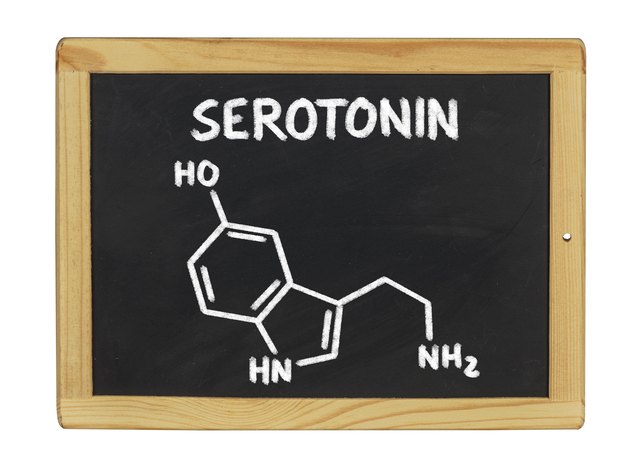
3. SAMe
The body naturally produces a chemical called SAMe (S-Adenosyl-L-Methionine) that has been shown to be effective in the treatment of depression. It is produced from methionine, an amino acid that is found in every cell of the body.
In Europe, SAM-e is a prescription drug to combat depression, osteoarthritis and liver disease. In the U.S., you can find it with other over-the-counter herbal supplements. In cases of bipolar disorder (manic depression), SAMe should not be taken because it may increase episodes of mania.

4. Ashwagandha
Also known as Indian Cherry, Ashwagandha is an herb that has been used for centuries by Ayurvedic practitioners in India to address a variety of conditions. The key benefits of Ashwagandha are to support the thyroid and adrenal glands, which can help you adapt to stress. When used to improve symptoms of depression, this ancient herb helps to calm the central nervous system and reduce anxiety. Since it is a mild sedative, many take this supplement before going to sleep to help with depression-related insomnia.
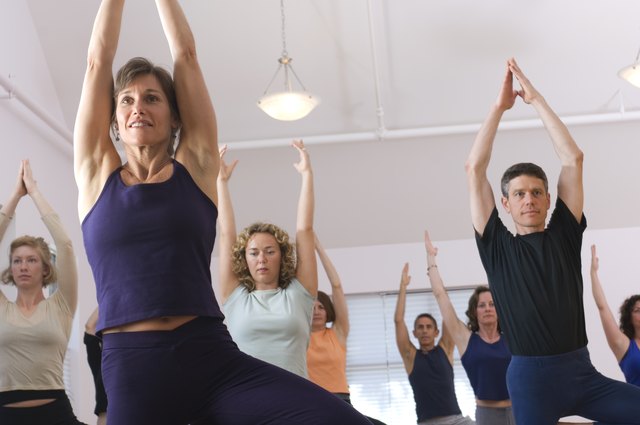
5. Yoga
If your depression is rooted in anxiety, yoga can help. Yoga has shown to reduce the stress hormone cortisol and increase feelings of peace and well-being. Through the yoga postures and breathing techniques, awareness is increased and your mind is brought into the present moment. This helps to calm the worrying mind and create a feeling of ease with whatever situation is causing the anxiety. Yoga also increases the connection between mind and body, leaving you feeling more in control of your thoughts through controlling the breath.

6. Exercise
Exercise not only helps the body, but also keeps your mind positive. Research shows that moderate physical activity reduces symptoms of depression. This can be as simple as going for a 30-minute walk every day. It has also been found that exercise helps to prevent depression. In a comparison study, of active versus inactive people, those who exercised fared 30 percent better at avoiding depression. In a University of Toronto study, there was evidence that even moderate exercise is effective in boosting mood and preventing depression from setting in.

7. Music Therapy
There’s a reason why everyone loves music – it makes you feel good! And, there is research to prove it. A 2008 Cochrane review showed evidence that playing upbeat or relaxing music boosted the moods of people with depression. Another type of music therapy includes sound baths, which are improvised concerts using metal gongs and crystal bowls as instruments. The audience typically lies on the ground allowing the sounds to “bathe” them.

8. Psychotherapy
One way to stay positive while remaining completely medication-free is to see a psychotherapist. Since your thoughts dictate your mood, a psychotherapist can support you in having more positive thoughts on a regular basis.
Cognitive therapy, in particular, is a type of psychotherapy where the therapist identifies negative thought patterns, then questions and challenges these thoughts in order for clients to second guess their thinking a take a different route. Over time, this consistent questioning and challenging can alter negative thought patterns, and even alter the structure of the brain, to create a more positive experience in the mind.

9. Meditation and Mindfulness
Mindfulness, which is cultivated through meditation, is being aware of our thoughts and emotions without judging them. Zen-Buddhist meditation, in particular, has shown to help patients who suffer from anxiety and OCD (obsessive-compulsive disorder) to keep their thoughts from spiraling. According to a study from Emory University in Atlanta, mindfulness may also help to alleviate symptoms of depression.
How does it work? Meditation focuses on present-moment awareness and can help you observe your anxiety or depression emotions, rather than experience them. This observation creates some “space” between you and your emotions, therefore providing perspective.
A daily meditation practice can help train the brain to make this observation skill a habit. The key is not to judge the thoughts while in observation mode, rather, allow them to come up and out and eventually pass. This observation helps you to realize your depressed thoughts and emotions are temporary and stilling the mind allows them to pass effortlessly
www.livestrong.com





No comments:
Post a Comment